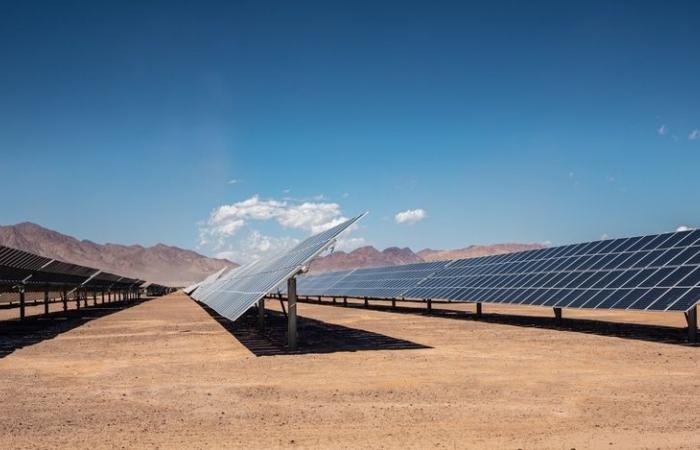On December 15, 2024, Egypt officially inaugurated the Abydos solar power plant in Aswan, an ambitious project of 500 megawatts (MW) carried by the company AMEA Power, based in Dubai. Made in 18 months only, this infrastructure represents a colossal investment of 500 million euros and is part of the national strategy to reduce the country’s dependence on fossil fuels.
A key site for renewable energy
The Abydos power plant will produce each year 1 500 gigawattheures (GWh) of clean energy, sufficient to power approximately 300,000 Egyptian households. Even more, it will contribute to reduce CO2 emissions by 782,300 tonnes annuals. In a country where summer power cuts can last up to three hoursthis plant becomes an urgent response to stabilize the national electricity network.
| Characteristic | Key Data |
|---|---|
| Ability | 500 megawatts (MW) |
| Annual Production | 1 500 GWh |
| Powered Fireplaces | 300 000 |
| CO2 reduction | 782 300 tonnes/an |
| Construction duration | 18 months |
| Total Investment | 500 million euros |
AMEA Power and international support
The project was made possible thanks to funding from major international institutions, such as the International Finance Corporation (IFC)the Dutch Bank FMO and theJapan International Cooperation Agency (JICA). This collaboration demonstrates the growing interest in Egypt’s energy potential and its strategic position in Africa.
“Abydos solar power plant will accelerate Egypt’s green energy strategy and help it cope with electricity shortages”said Hussain Al Nowais, Chairman of AMEA Power.
Aswan, a region already famous for its exceptional sunshine, is also home to the Benban solar park, inaugurated in 2019 with a total capacity of 1 650 MW. Today, the Abydos power plant completes this rapidly transforming energy landscape.. The Egyptian government does not stop there: an agreement has just been signed for a wind farm 500 MW in Ras Shukeir, north of the Red Sea, for an investment of 600 million dollars. The stated objective is clear: achieve 42% renewable energy in the energy mix here 2030against only 11,5 % Currently.
A major socio-economic impact
In addition to its ecological benefits, the Abydos plant plays a key role in creating local jobs and developing technical skills. Ultimately, it could also significantly reduce expenses linked to hydrocarbon imports.
List of major advantages of the Abydos power plant:
- Reliable and massive renewable energy production.
- Reducing dependence on fossil fuels.
- Stabilization of the electricity network during summer peaks.
- Job creation and regional economic development.
A strong signal for the energy world
With this project, Egypt is sending a clear message: it is positioning itself as a regional leader in the energy transition. However, behind these advances lies a burning urgency: what if this power plant wasn’t enough? In a global context marked by the climate crisis and energy shortages, the Abydos power plant seems to be a breath of fresh air for a country asphyxiated by its dependence on fossil fuels..
Will it be able to keep its promises in the face of growing demand? Or is it just a temporary solution in a sea of challenges? One thing is certain: Egypt no longer has the luxury of going backwards.
A reaction? Leave a comment
Did you like this article? Subscribe to our free newsletter for engaging articles, exclusive content and the latest news.






